skip hire & waste
recycling tips
Our advice section gives you all you need to know about skip hire and waste recycling, with valuable tips and tricks for domestic DIYers and helpful advice for businesses and their waste handling. Our comprehensive articles, recycling tips, and much more will help you get the most from your skip hire experience and is your go-to guide for all things recycling!

Confused about recycling? A new study says you’re not alone!
Waste processing has been big news throughout 2018, with more headlines than ever pointing to its impact on our planet...

New UN Research Says That Only 20% Of E-Waste Is Recycled
We’ve talked about e-waste before here on the blog here at Skip Hire Network. It’s well known as one of...

Improvements in Waste Disposal: Looking at Landfills
Ask anybody, and you’ll find that no one likes landfill. It’s not difficult to see why; it’s ugly, smelly and...

Why Does Skip Hire Network Use A Waste Transfer Station?
Proper waste disposal is a cornerstone of our business here at Skip Hire Network, and we take it very seriously....

Trade Skip hire for building sites
Over the last few weeks, we’ve been taking a look at our domestic skip hire services. But, while we’ve got...

Your Reliable National Skip Hire Service
Here at Skip Hire Network, our aim is to be a one-stop shop for all your container needs. We offer...

Which skip should I hire for domestic clearouts?
Hiring a skip or container for the first time can be a bit of a baffling experience. What size do...
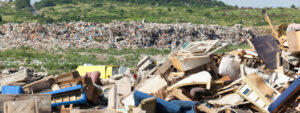
How Covid-19 is changing the UK’s attitude towards waste
Arguably not since the Second World War has a single event required such dramatic changes to our daily lives. In...

Quick Tips For Hiring Skips
We pride ourselves on being pretty clued-up on responsible waste disposal here at Skip Hire Network, even if we do...
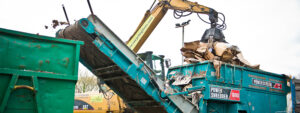
The Oddest Things Found In Skips
Responsible waste disposal is something we’re very passionate about in the skip hire business. But then again, some people use...

Skip To The Point – Why Can’t We Just Burn Our Rubbish?
In some ways, it seems like it would solve a lot of problems if we just burned our rubbish. After...

Why choose green skip hire for your garden waste?
In the recent burst of gorgeously warm sunny weather, you may well have been amongst the thousands of homeowners across...

What Happens To Garden Waste After You Hire A Skip?
Now that autumn is quickly giving way to full blown winter, you may well have been taking the opportunity to...
Make Sure You Know Your Responsibilities Toward Waste!
If you’re a business owner, you may well already know your general responsibilities towards waste, especially if you find yourself...

How Can I Get Rid Of Items I Can’t Put In A Skip?
While skip hire is great for disposing of commercial and household waste, there are some things that you can’t get...

Which skip should I hire for a house renovation?
One of the most common reason for hiring a skip is having work done on your home – whether that’s...

What You Need To Know Before Hiring A Skip – The Essential Skip Hire Guide
It’s a question we’re asked a lot here at Skip Hire Network, and the answer can depend on a lot...

What Is Landfill Tax? A Quick Explanation
It’s a pretty universal truth that nobody likes landfill. It’s mostly regarded as a necessary evil, a last resort for...

Everything you need to know about our skip sizes
Looking to hire a skip? Great – you’re in the right place! But knowing you want to hire a skip...

The Big Picture: How Long Does Our Waste Take To Break Down?
Responsible waste management is something we’re passionate about here at Skip Hire Network, and for many, hiring a skip is...

A complete guide to the cost of hiring a skip
When you’re planning a building, clearance or renovation project at home or at work, you may well need to factor...

The Rubbish Consequences Of Poor Waste Management
At Skip Hire Network, we’re wholly committed to our environmental responsibility; that’s why we’ve made effective waste management a key...

Can you put a mattress in a skip?
You probably don’t think much about your mattress on a day to day basis. Since they’re normally around for at...

6 recycling mistakes you might be making
Sustainability and recycling are two major concerns of ours here at Skip Hire Network. In fact, it’s one of the...

Your Questions Answered About Skip Hire Permits
Depending on your situation, when hiring a skip it’s possible that you’ll need a skip hire permit from your local...

What Is A Waste Transfer Note?
Like all responsible waste disposal companies, when we collect any amount of waste from you, we’ll give you a waste...

What items can’t I put in a skip?
Hiring a skip is part of any big building, landscaping or renovation project, whether at home or at work. It’s...

Which skip should you use for a garden clearance?
Landscaping, garden clear-outs, conservatory demolition – there’s plenty to be done in your garden, and plenty of waste that comes...

How to dispose of medical and clinical waste at home
You can hire a skip to dispose of all sorts of waste, but sadly, medical waste isn’t one of them!...

What size of skip do I need for bathroom clearance?
When you’re getting started with your own bathroom renovation, one of the first things you’ll need to consider is the...

How to remove your old kitchen so it’s ready to put in your skip
After all the planning, the discussions and the financial tallies, you’re finally ready to get your new kitchen installed. Before...

Why You Need To Know About EWC And SIC Codes
Our latest article in our series on waste transfer notes deals with EWC and SIC codes. To recap quickly on...
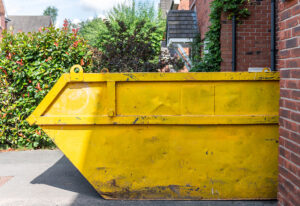
4 Yard Skips (Midi Skips) Size Guide
Essentially, a 4 yard skip is one of the smallest sizes of skip we offer here at Skip Hire Network,...

A Guide To Builder’s Skips (6 Yard to 8 Yard Skips)
Builder’s skips are amongst the many sizes of skip we offer here at Skip Hire Network, and amongst the most popular with...

How to responsibly dispose of paint
You can get rid of an awful lot of household waste by hiring a skip. Sadly though, leftover paint and...
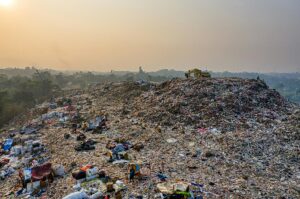
Why can’t you put plasterboard in a skip?
It’s a straightforward question with a not-quite-straightforward answer. The truth is that you can technically dispose of plasterboard in a...
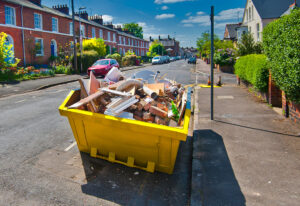
Why it’s important to carefully pick your skip hire provider
When you’ve got any kind of substantial waste on your premises, it’s understandable that you’d want to hire a skip and get...
